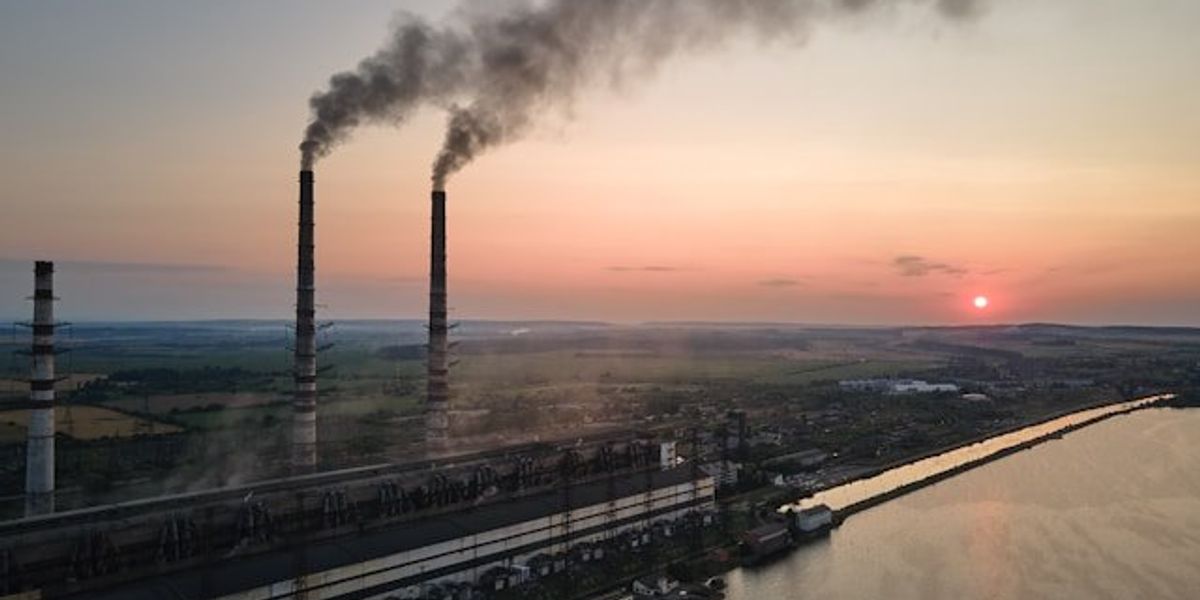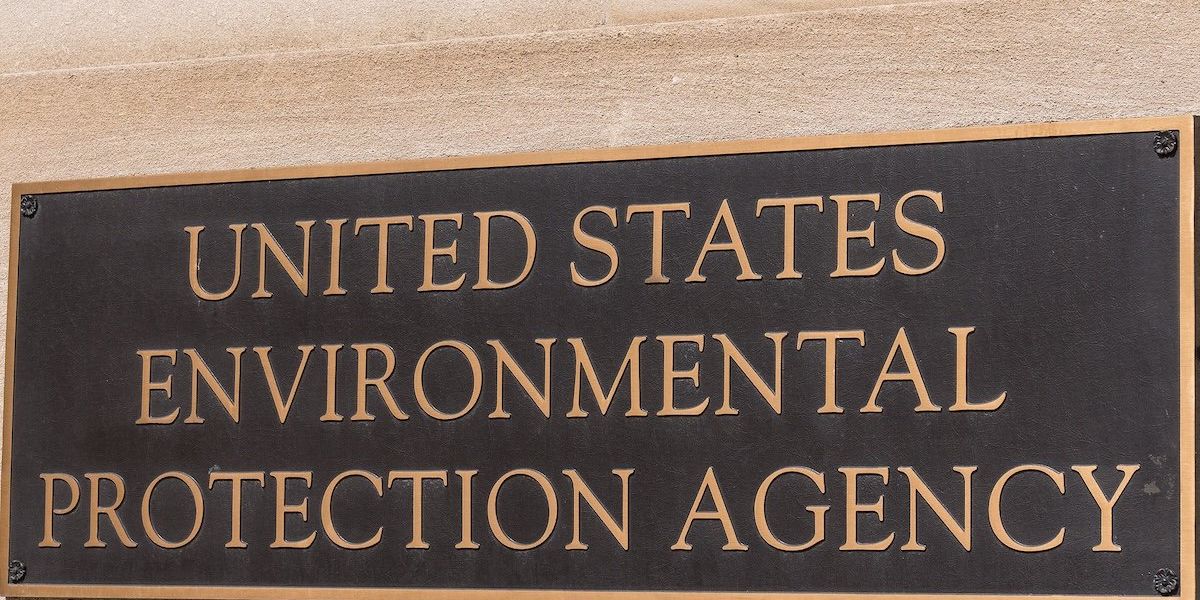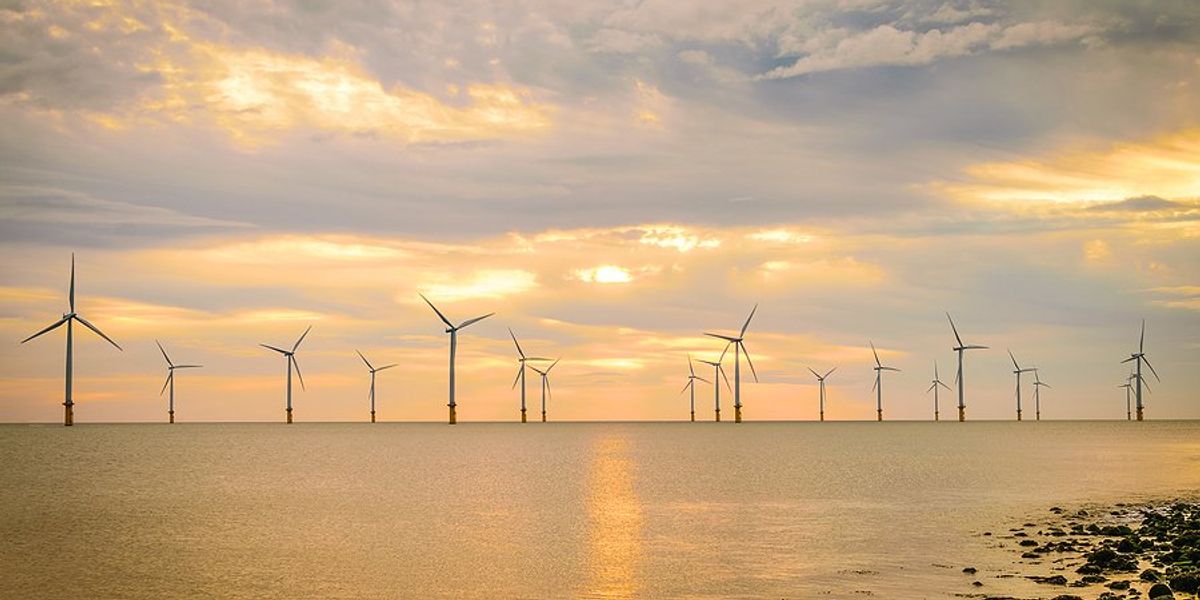election 2024
Wind companies invest $93M in mid-Atlantic despite looming Trump opposition
The offshore wind industry showed resilience by committing $93 million in bids for mid-Atlantic projects, undeterred by the potential return of Trump to the White House.
In short:
- The Biden administration secured $93 million in bids for offshore wind projects off Delaware, Maryland and Virginia despite industry challenges and political uncertainty.
- Trump has vowed to target the offshore wind industry if reelected, but developers appear confident in the sector's long-term prospects.
- The Interior Department auction results reflect growing state-level commitments to offshore wind, with major projects planned for the mid-Atlantic.
Key quote:
“Today’s lease sale reflects the forward momentum we are seeing to power millions of American homes with clean energy and create good-paying, climate jobs.”
— Ali Zaidi, White House climate adviser
Why this matters:
The auction's success suggests continued confidence in offshore wind development, even as political threats and economic challenges loom. The projects are significant for meeting renewable energy targets and mitigating climate change.
Related: Trump's return could severely impact Biden's wind power initiatives
Vice-presidential nominee Tim Walz's environmental stance, scrutinized
Minnesota Governor Tim Walz, now the Democratic vice-presidential nominee, faces criticism from environmentalists for his cautious approach to mining in the state, balancing economic development with environmental protection.
In short:
- Governor Tim Walz has been criticized for not taking decisive action against mining developments in Minnesota, despite being viewed as a climate champion. Concerns are raised about potential environmental damage from mining projects near critical watersheds.
- Walz is caught between promoting economic growth and securing resources for clean energy while protecting Minnesota's environment. He supports sustainable mining and maintaining a robust permitting process without overtly opposing mining interests.
- Environmental groups express disappointment in Walz's defense of mining permits and call for stronger regulations, while mining companies and unions see him as pragmatic and supportive of job creation.
Key quote:
“On many issues, he’s been very strong for the environment, but on this one, he’s been on the sidelines.”
— Chris Knopf, executive director, Friends of the Boundary Waters Wilderness.
Why this matters:
Minnesota's untapped nickel and copper deposits are vital for clean energy technology. As demand for these metals grows, the state’s mining policies are under scrutiny for their potential environmental impacts, including water pollution and habitat disruption, and their economic implications for local communities and the broader region.
Related: Tim Walz’s energy record sparks debate on environmental policies
Examining Tim Walz's agricultural ties, climate record
Minnesota Gov. Tim Walz, chosen by Kamala Harris as her vice-presidential running mate, faces scrutiny over his climate policies despite strong agricultural ties.
In short:
- Gov. Tim Walz's agricultural policies have earned him praise from climate advocates, but his support for ethanol and factory farming raises environmental concerns.
- Walz's legislative work, including the SOIL Stewardship Act, highlights his efforts to promote sustainable farming by improving soil health and carbon sequestration.
- Critics point to Walz's support for emissions-intensive agricultural practices, such as ethanol production, which conflicts with his environmental advocacy.
Key quote:
"On biofuels he’s indistinguishable from all the other Republicans and Democrats in Midwestern states, which is bowing at the altar of almighty corn."
— Ferd Hoefner, former policy director, National Sustainable Agriculture Coalition
Why this matters:
Ethanol, often touted as a greener alternative to fossil fuels, still poses challenges in terms of its actual carbon dioxide emissions and the extensive land use required for corn production, the primary source of ethanol in the United States. Meanwhile, factory farming, known for its efficiency in meeting global food demands, continues to be a significant source of methane emissions, a potent greenhouse gas, and often involves practices that can lead to deforestation, water pollution and biodiversity loss.
Related:
Tim Walz’s energy record sparks debate on environmental policies
Minnesota Governor Tim Walz, chosen by Kamala Harris as her vice-presidential running mate, has a mixed energy record, balancing aggressive low-carbon policies with controversial support for an oil pipeline.
Brian Dabbs, Carlos Anchondo, and Jeffrey Tomich report for E&E News.
In short:
- Governor Tim Walz has enacted one of the most aggressive carbon-free power laws in the U.S. but has faced criticism for supporting the Line 3 oil pipeline.
- Walz's energy policies aim to transition Minnesota's power sector to clean energy, yet his stance on fossil fuels has led to both praise and criticism.
- Environmentalists see his selection as a chance to further climate goals, while critics view it as a continuation of existing energy policies.
Key quote:
“His lack of action to stop the Line 3 pipeline shows a troubling deference to fossil fuel interests.”
— Collin Rees, political director of Oil Change U.S.
Why this matters:
Tim Walz's selection as Kamala Harris’s running mate highlights the ongoing tension between advancing clean energy and maintaining fossil fuel infrastructure. His energy record reflects the complex challenges of balancing environmental progress with economic and political realities.
Related:
Rep. Jamie Raskin probes oil companies over alleged Trump donation meeting
Rep. Jamie Raskin is demanding details from oil industry leaders about a reported meeting with Donald Trump, where deregulation promises were allegedly exchanged for campaign donations.
In short:
- The inquiry involves letters sent to companies like ExxonMobil after claims Trump offered regulatory rollbacks for $1 billion in campaign support.
- According to a spokesperson, the American Petroleum Institute engages with various political figures, emphasizing industry topics like energy security.
- Raskin's letters cite concerns over potential ethical and legal violations stemming from the reported promises of policy changes for donations.
Why this matters:
The investigation suggests a direct link between political contributions and policy making, a situation that raises questions about the influence of money in politics and its impact on sustainable environmental practices. This scenario could set a worrying precedent where environmental protections become secondary to corporate profits.
$1 billion: Trump's aggressive campaign for oil industry funds revealed
Donald Trump's recent engagement with top oil executives at Mar-a-Lago showcases a bid for campaign funding in exchange for regulatory rollbacks.
Josh Dawsey and Maxine Joselow report for The Washington Post.
In short:
- Trump promised oil industry leaders substantial regulatory rollbacks in exchange for significant campaign contributions.
- This fundraising strategy highlights a direct linkage between financial support and policy promises aimed at benefiting the oil industry.
- The former president's agenda starkly contrasts with existing environmental policies, suggesting major policy reversals if re-elected.
Key quote:
"You all are wealthy enough, you should raise $1 billion to return me to the White House."
— Donald Trump, former U.S. president
Why this matters:
If he's elected in November, Trump's promises to the oil industry could result in the reversal of key U.S. environmental and health policies enacted during the Biden administration, potentially eroding gains in emissions reductions, clean energy advancements and environmental justice.
Flashback to 2020: Trump's first term resulted in significant environmental rollbacks. Here are a few of them.
Former Trump administration officials may rejoin for a second term
Former Trump administration officials are likely to return if he wins the upcoming presidential election against Joe Biden, with many expressing interest in rejoining the Interior Department.
In short:
- Many Trump-era Interior Department officials, including former Secretaries and appointees, are reportedly ready to serve again.
- Speculated returnees include David Bernhardt and Katharine MacGregor, with some currently holding influential roles in Republican-led states.
- Regular social gatherings among former Trump Interior staff suggest ongoing discussions about potential roles in a second administration.
Key quote:
"I think there are going to be a lot of familiar faces that will want to go back."
— Cole Rojewski, former congressional liaison, U.S. Interior Department.
Why this matters:
The reappointment of former Trump administration officials could significantly influence U.S. environmental and energy policies, particularly in areas like resource extraction and regulatory changes. Their experience and previous initiatives suggest a continuation of the policies seen during Trump's first term.
Will 2024 bring a repeat of these kinds of headlines? Rethinking energy and justice in the Trump era.



















